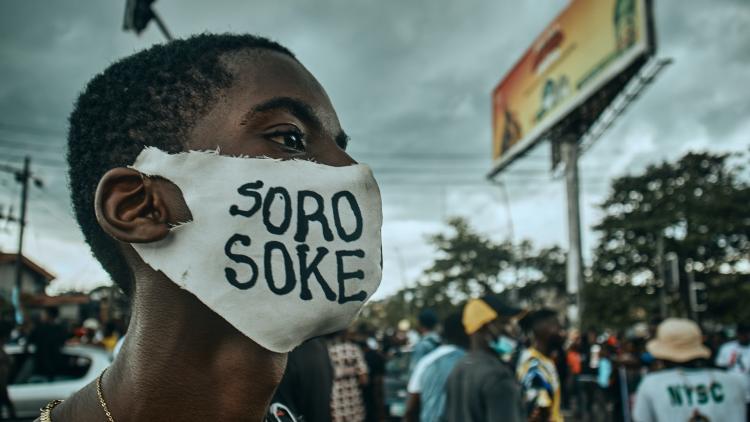Research Methods in Law

Key information
- Start date
- End date
- Year of study
- Year 1
- Duration
- Full
- Module code
- 15PLAC181
- FHEQ Level
- 7
- Credits
- 30
- Department
- School of Law, Gender and Media
Module overview
The Seminars on Research Methods in Law will cover a wide range of practical and theoretical issues relative to the students’ ability to successfully conduct research in law and various related disciplines at a PhD level.
Their main purpose is to provide new doctoral students with a critical introduction to the methodological and structural requirements of a PhD project at SOAS, as well as to offer a unique space for interaction and learning particularly geared towards developing students’ key analytical and writing skills.
Objectives and learning outcomes of the module
- Grasp law research theories and skills in order to continue with their own independent research
- Undertake and complete advanced level legal research
- Formulate a research proposal and appropriate research questions
- Undertake a critical analysis of literature relevant to a chosen research topic
- Analyse and develop a sustained written legal argument
- Present new research proposals both orally and in writing
- Organise field work necessary to the completion of a research project
Workload
- Weekly 2-hour seminar
Scope and syllabus
Students on this module will be actively encouraged to discuss the structure, methods and theoretical implications of their own research. In addition, they will be introduced to numerous methodological approaches to studying law in/and society—especially those that feature prominently in PhD projects at SOAS.
They include, but are by no means limited to issues in legal, religious and linguistic pluralism; legal history; legal anthropology; legal philosophy/jurisprudence; feminist and queer legal studies; comparative studies of constitutional and criminal law and legal systems more generally; critical studies of international law; as well as the methods specific to such movements as Critical Race Theory, Third World Approaches to International Law, Critical Legal Studies or the Marxist tradition of critical social theory.
Focus on the empirical
Whilst doctrinal approaches to researching law will certainly be covered, our seminars will place a particular emphasis on the methodologies more closely associated with socio-legal studies. This means that we will consider in some detail, both in practical and theoretical terms, what it means to conduct qualitative field research (i.e. fieldwork)—including issues of research ethics and the use of interviews, surveys, participant observation and life-histories.
Related to this will be our collective exploration of what constitutes an archive of law, which will critically address the question of ‘evidence’—whether textual, oral, visual or otherwise.
In addition, our Library and Digital Services experts will offer a range of practical tips and suggestions, which should help students in their day-to-day doctoral journey at SOAS, including library research in law, history and anthropology; Research Data Management; Open Access; Understanding Publishing Agreements; and Online Research Profiles.
In sum, the First-Year Postgraduate Seminars on Research Methods in Law will provide a comprehensive introduction to critical legal methodologies and the law’s theoretical and practical interrelations with the wider social sciences and the humanities. They are aimed to equip students with a range of research skills, techniques and theoretical approaches essential for a successful completion of their PhD project as well as to foster their interaction with and integration into the larger SOAS research community.
Method of assessment
- Essay: 100% (6,000 words)
Suggested reading
There is a wide variety of literature, both general and specific to legal research, which you might find instructive. For an excellent overview of some of the theoretical and methodological challenges you may experience whilst undertaking your thesis (and ways of overcoming them!), you are advised to consult:
- Patrick Dunleavy, Authoring a PhD: How to Plan, Draft, Write and Finish a Doctoral Thesis or Dissertation (Basingstoke: Palgrave MacMillan, 2003).
Useful additional literature of the same nature includes:
- Estelle M. Phillips and Derek S. Pugh, How to Get a PhD: A Handbook for Students and Their Supervisors (6th edn, Buckingham: Open University Press, 2015);
- David Evans, Paul Gruba and Justin Zobel, How to Write a Better Thesis (3rd end, Cham: Springer, 2014).
For legal methodologies, there is no one suitable book, but the one that comes closest to the needs of a research student wanting to cover the main methodological issues in major approaches to legal scholarship is:
- Margaret Davies, Asking the Law Question (4th edn, Pyrmont: Lawbook Company, 2017).
You may also find the following books useful:
- V. Richard Benjamins, Pompeu Casanovas, Joost Breuker and Aldo Gangemi (eds), Law and the Semantic Web: Legal Ontologies, Methodologies, Legal Information Retrieval and Applications (Heidelberg: Springer, 2005);
- Mike McConville and Wing Hong Chui (eds), Research Methods for Law (Edinburgh: Edinburgh University Press, 2007);
- Caroline Morris and Cian Murphy, Getting a PhD in Law (Oxford: Hart Publishing, 2011);
- Giovanni Sartor, Pompeu Casanovas, Maria Angela Biasiotti and Meritxell Fernández-Barrera (eds), Approaches to Legal Ontologies: Theories, Domains, Methodologies (Dordrecht: Springer, 2011);
- Mark Van Hoecke (ed.), Epistemology and Methodology of Comparative Law (Oxford: Hart Publishing, 2004);
- Mark Van Hoecke (ed.), Methodologies of Legal Research: Which Kind of Method for Which Kind of Discipline? (Oxford: Hart Publishing, 2011);
- Dawn Watkins and Mandy Burton (eds), Research Methods in Law (London: Routledge, 2013);
- Reza Banakar and Max Travers (eds), Theory and Method in Socio-Legal Research (Oxford: Hart Publishing, 2005);
- Lina Kestemont, Handbook on Legal Methodology: From Objective to Method (Cambridge: Intersentia, 2018).
Finally, those inclined to treat with suspicion any overly structural approaches to research methods in the social scienties, including law, might find instructive the following provocative work:
- John Law, After Method: Mess in Social Science Research (London: Routledge, 2004)
Excerpts from some of the above publications will be made available to you by your Module Convenor, Dr Vanja Hamzić. In addition, should any of the listed titles prove difficult to obtain, please let Dr Hamzić know and he will gladly point you in the right direction.
Disclaimer
Important notice regarding changes to programmes and modules.



